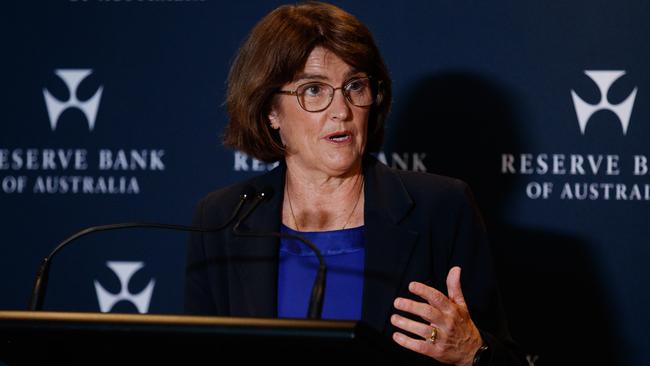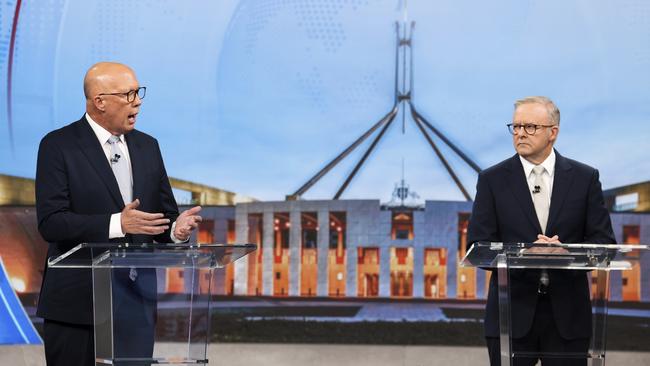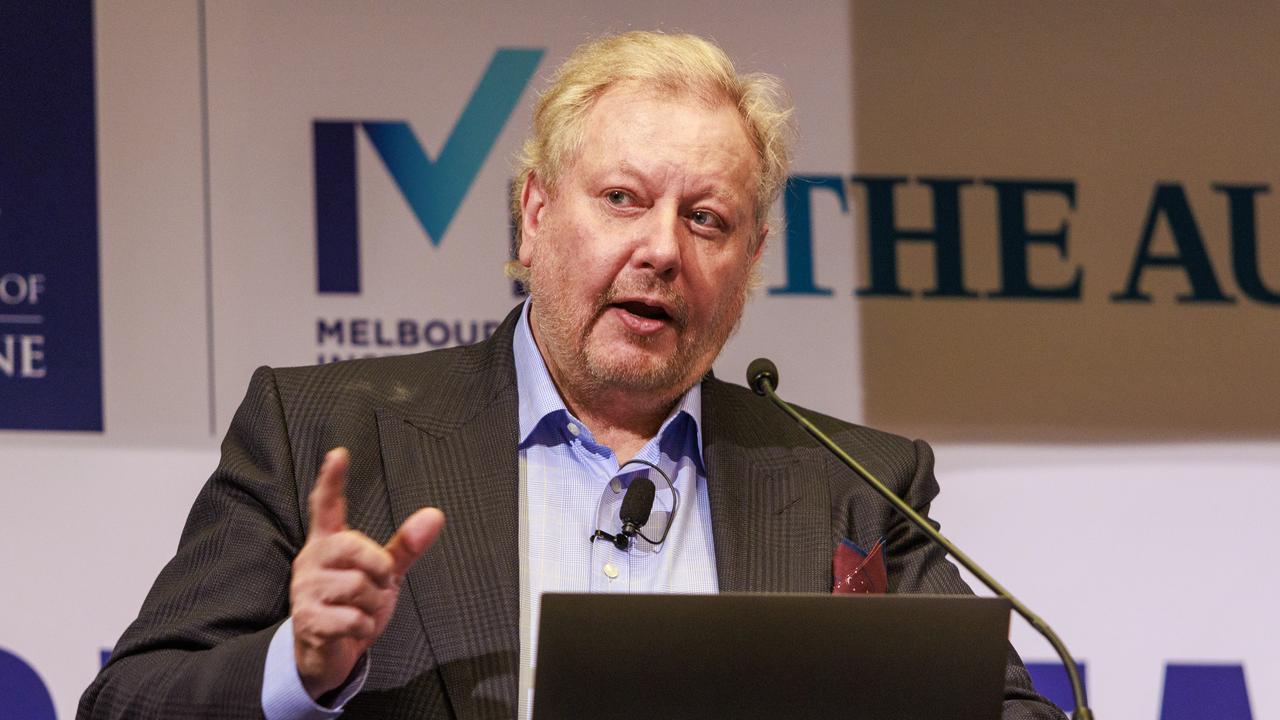Election result unlikely to rattle local financial markets
Markets may breathe a sigh of relief as political uncertainty abates after the federal election with the incumbent Australian Labor Party now favoured to retain power.

Business
Don't miss out on the headlines from Business. Followed categories will be added to My News.
Australian financial markets may breathe a sigh of relief next week as political uncertainty abates after the federal election, with the incumbent Australian Labor Party now favoured to retain power.
With US President Donald Trump’s “Liberation Day” tariffs last month potentially reducing support for conservative politicians globally, prediction markets now assign an 80 per cent chance of the ALP ultimately forming government, which is up from around 40 per cent a month ago.
A minority government still looks the most likely scenario.
However, investors no longer face much risk of a hung parliament, whereby the ALP and Liberal/National Coalition would each seek to negotiate with minor parties and independents to form a minority government.
Australian markets remain at the mercy of the trade war and its impact on the global economy. But at the same time, investors may look favourably on Australia’s political stability, expansionary fiscal settings and potential for interest rate cuts.
The fact that Australia isn’t retaliating to US tariffs may limit domestic inflation risks, allowing the Reserve Bank to resume interest rate cuts in May.
“We think the softer global backdrop and more pronounced near-term disinflation will allow the RBA to move to more neutral settings faster than we had previously thought,” said Morgan Stanley Australia equity strategist Chris Nicol.
Financial markets have priced in at least four more interest rate cuts by the RBA this year. Expansionary fiscal policy is also expected to support the economy and domestic corporate earnings.
“Adding up recent policy announcements, we estimate annual net spending under the LNP would be somewhat higher at about 0.4 per cent of GDP compared to the incumbent ALP over the next few years, largely reflecting the LNP’s proposed temporary tax rebate and reduction in fuel excise,” said Goldman Sachs Australia chief economist Andrew Boak.

He sees a series of 25 basis point interest rate cuts by the RBA – starting in May – to a terminal rate of 3.25 per cent versus 4.1 per cent now. Ongoing expansionary fiscal settings in Australia are expected to partly offset economic risks from the trade war, precluding any need by the RBA to cut in 50 basis points increments and lower the cash rate to a “below neutral” setting.
In terms of the potential impact of the federal election on stocks, Dimensional Fund Advisors has taken a close look at how Australian stocks have historically performed during election months. After mapping out every federal election month since the Whitlam government came to power in 1972, it found most of the time returns are pretty average.
Most election months haven’t caused extreme returns in one direction or another.
“If you look at the history of Australian stocks since 1970, there’s no consistent pattern in how markets behave during federal election months,” said Dimensional Fund Advisors chief executive for Australia Bhanu Singh.
“It doesn’t seem to matter which party wins. The direction or magnitude of market movements in those months doesn’t follow any reliable trend based on the election outcome.”
His takeaway is investment decisions shouldn’t be made based on election predictions – or even actual results. They’re unlikely to deliver excess returns. Worse, they could lead to costly mistakes.
“It’s a timely reminder that markets tend to look past short-term political events,” Mr Singh said.
“Ultimately, this reinforces the value of having a consistent approach to asset allocation: making a long-term plan and sticking to it.”
However, Australian federal election campaigns do tend to see uncertainty driving weak gains for shares, followed by a bounce.
“In terms of the sharemarket, there is some evidence of it tracking sideways ahead of elections, possibly reflecting uncertainty and then a relief rally once it’s over,” said AMP’s head of investment strategy and chief economist Shane Oliver.
But elections resulting in a change of government have seen a mixed picture.
Shares rose sharply after the 1983 Labor win but fell after the party’s 2007 and 2022 wins.
After the 1996 and 2013 Coalition election wins shares were flat to down.
“So, based on history it’s not obvious that a victory by any one party is best for shares and historically moves in global shares played a bigger role than the election,” Dr Oliver added.

Interestingly, he found that after 10 out of the 15 elections since 1983, the Australian All Ordinaries share index was higher after three months, with an average gain of 4.2 per cent before dividends.
Looking at the total return – capital growth plus dividends – from Australian shares over the post-World War II period, Dr Oliver found they averaged 12.9 per cent per annum under Coalition governments and 9.7 per cent under Labor.
“Labor governments led by Whitlam and Rudd/Gillard had the misfortune of severe global bear markets. And the reformist Hawke/Keating government defied perceptions that conservative governments are better for shares with shares, returning 17.2 per cent per annum,” he said.
The Australian dollar has, on average, drifted sideways over elections since 1983.
Looking at the Australian residential property market, using CoreLogic data since 1980, capital city property prices have risen 7.7 per cent per annum under Coalition governments and 4.3 per cent under Labor.
“That said, policies with respect to housing have not been particularly different under both sides of politics,” Dr Oliver said.
“Once in government, political parties are usually forced to adopt at least half sensible policies if they wish to ensure rising living standards, and arguably there has been broad consensus in recent decades regarding key macroeconomic fundamentals.”
Originally published as Election result unlikely to rattle local financial markets




